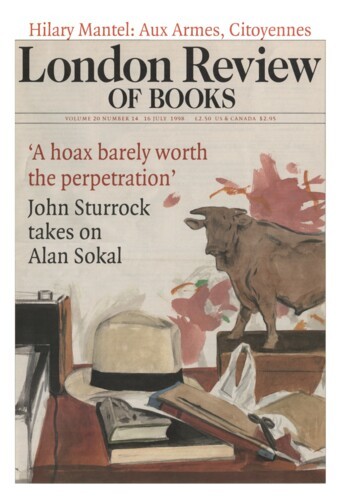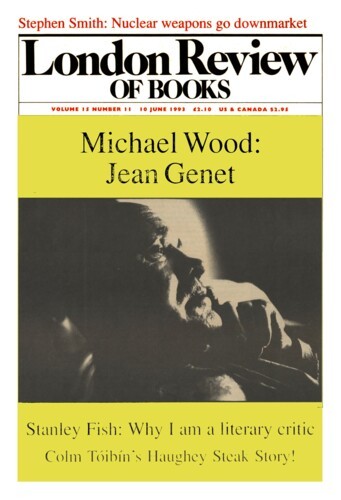Stephen Mulhall
Stephen Mulhall teaches philosophy at New College, Oxford.
The Burden of Disproof
Stephen Mulhall, 10 June 1993
What makes you think that next time you plug in your brimming kettle boiling water will be produced? I ask, as the sceptic in philosophy always asks, not because I have any specific reason for thinking that there is something wrong with the kettle, its lead or the electricity supply in your kitchen; and not because I dispute the validity of certain scientific theories about the behaviour of heated liquids. Let’s assume all is well in these respects, that there really is a pattern in our past experience which correlates the application of heat to water with its reaching its boiling-point: I want to know why the existence of such a pattern in the past gives you any reason to believe it will continue to hold in the future. We have after all no guarantee that the future will resemble the past: the contrary of any matter of fact, however well-established, always remains possible – and this suggests we have no more reason to expect a continuation of an observed pattern than we do to expect its complete breakdown. We certainly cannot avoid this conclusion by arguing that its continuation, although not certain, is more likely than its breakdown, for that would presuppose that the frequency with which we have encountered something in the past can form the basis of a calculation of the probability of its future re-appearance, which is precisely what is in question.’
Read anywhere with the London Review of Books app, available now from the App Store for Apple devices, Google Play for Android devices and Amazon for your Kindle Fire.
Sign up to our newsletter
For highlights from the latest issue, our archive and the blog, as well as news, events and exclusive promotions.


